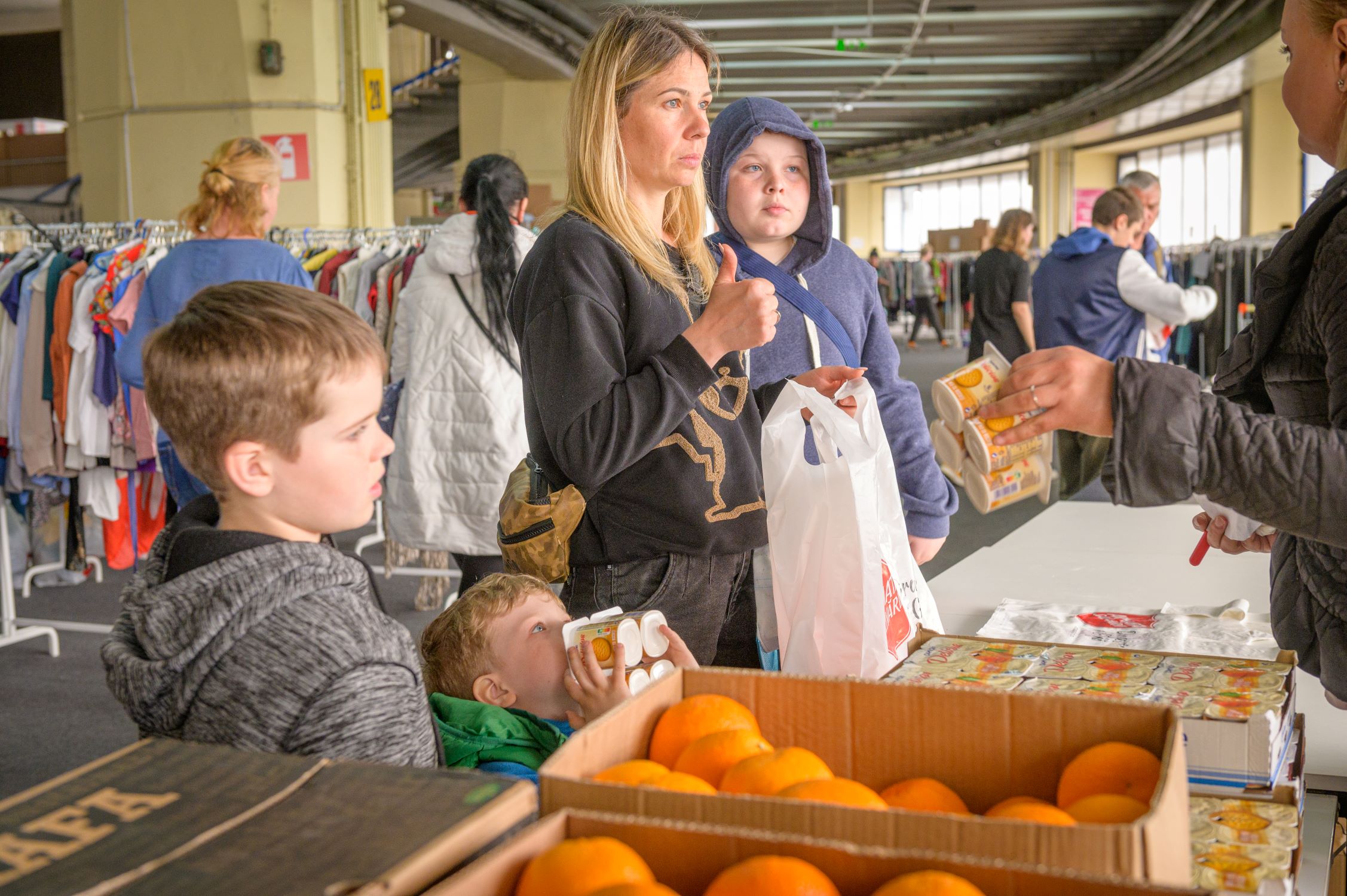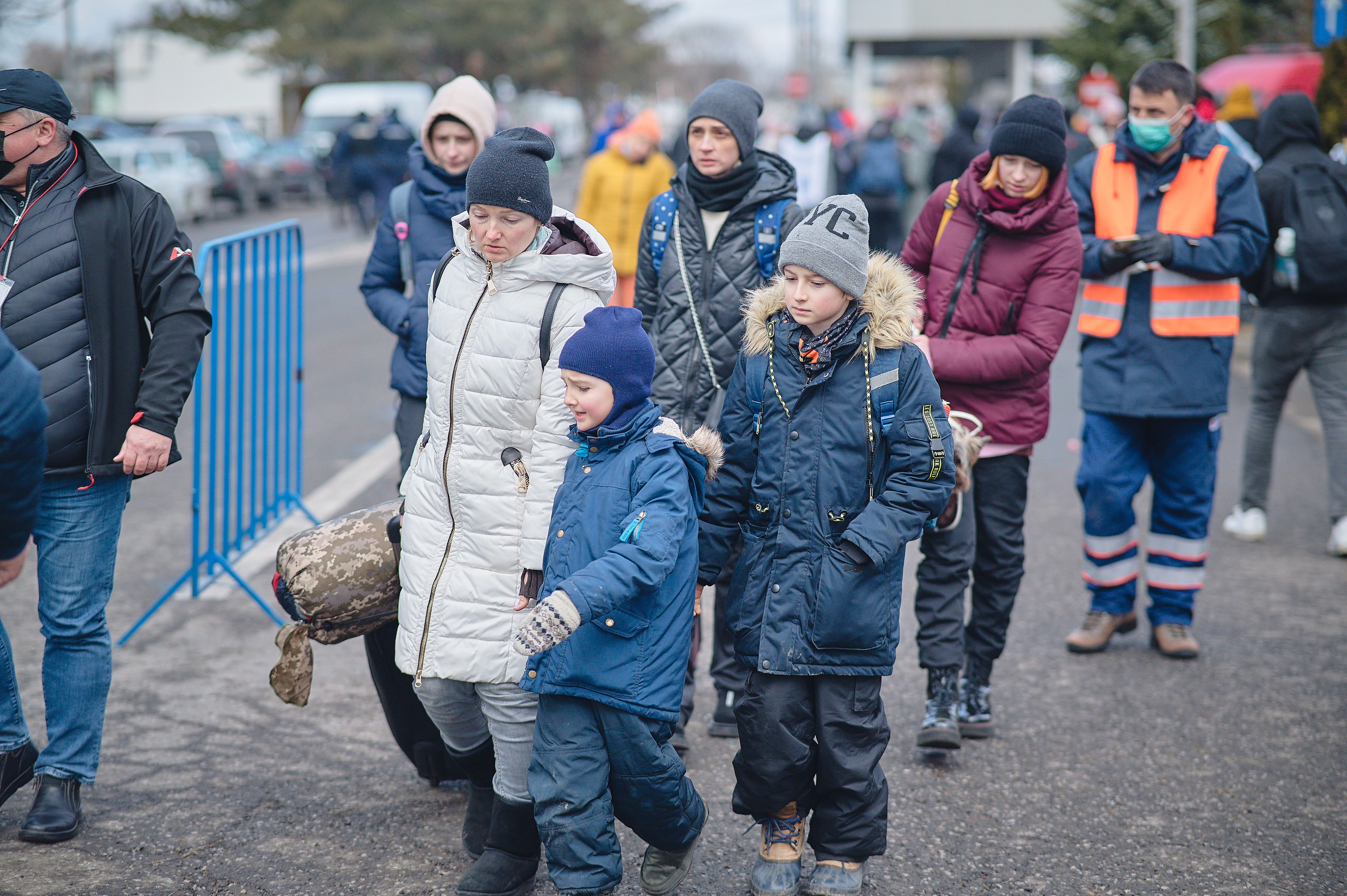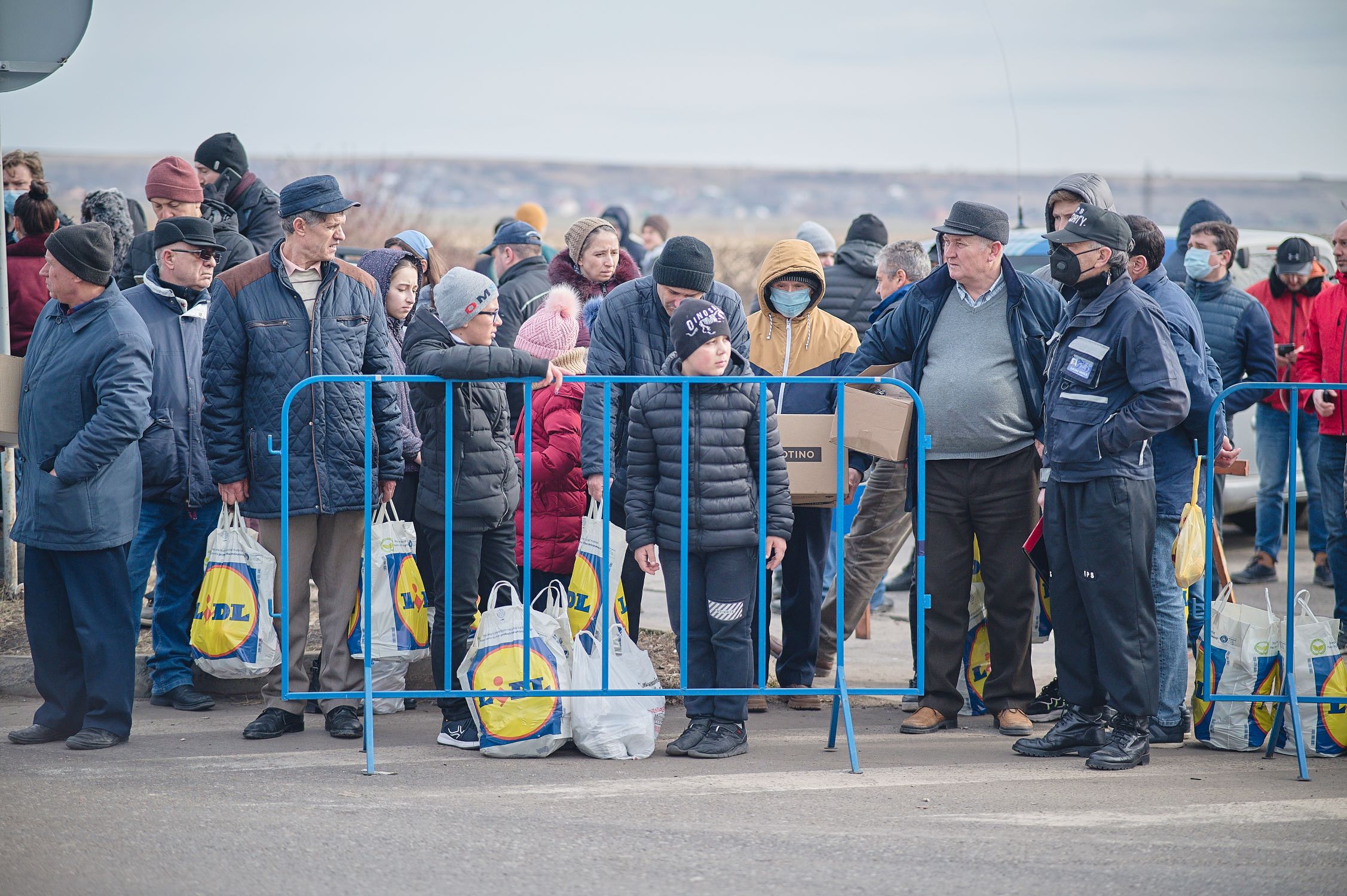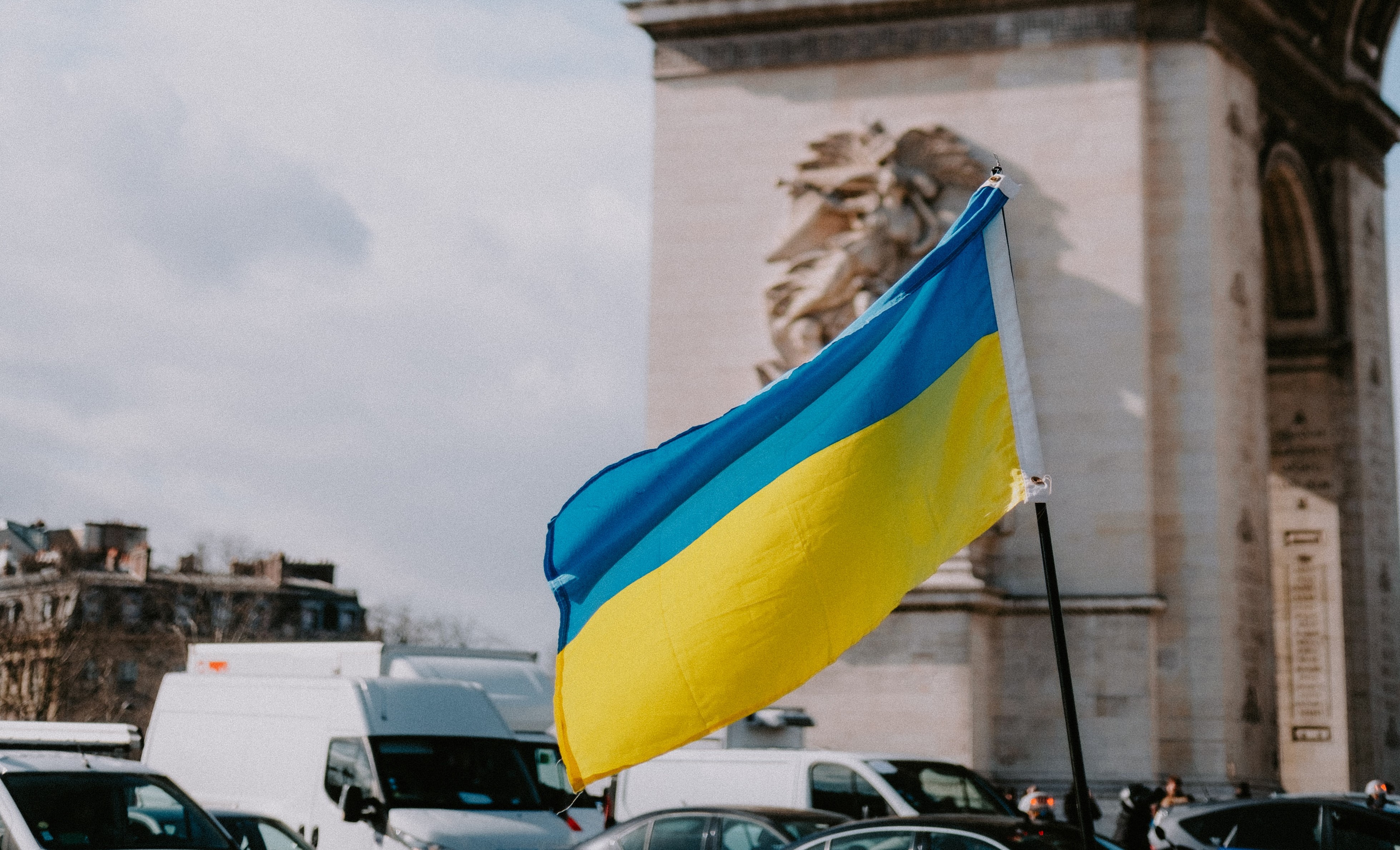
The Ukraine crisis: Six months on
The conflict began in February 2022… and has changed the world
It’s six months since the start of the Ukraine conflict, on 24 February 2022, and in that time the world has changed. Oil prices have shot up. Certain foods are scarce. People are panicking over even more cost-of-living increases. And for those in Ukraine, there has been utter devastation since the invasion: their homes have been bombed, loved ones have died and millions - mainly children and women – have been forced to escape their homes.
Since the war in Ukraine began, World Vision has helped over 116,000 refugees - including almost 50,000 children – to receive vital food, education and healthcare.
As well as working in Ukraine itself, World Vision is also helping Ukrainians in Moldova, Romania and Georgia with food, healthcare, education and psychosocial support.
We have also delivered essential aid to hospitals and host communities in Chernivtsi, Ukraine, and worked with the World Food Programme to hire a team and deliver cash to host communities in Moldova. We have created safe spaces for children to learn and play in Romania and Georgia.
One surprise visitor to our work with Ukrainian refugees in Romania was His Royal Highness the Prince of Wales.

Photo above: Children enjoying lunch together at a summer camp supported by World Vision, in a village in Western Ukraine. World Vision worked with local organisations to give displaced and host community children a much-needed reprieve from the daily realities of war. The summer camps are open to children between 5 and 17 years old.

Two-thirds of children have fled their homes
There are over seven million internally displaced Ukrainians and almost the same again who are refugees. A third of the Ukrainian population – including two-thirds of the children – have fled their homes. It is estimated that 24 million people will need humanitarian assistance in the months ahead.
Mark Sheard, CEO of World Vision UK, says: “The very scale of this humanitarian crisis has meant a multi-pronged response from World Vision in several countries, working alongside other charities as well as governments, schools and medical providers. This has been made possible due to the generosity of those who have donated to World Vision’s Ukraine appeal. Thank you to everyone who has helped us and is continuing to help us to provide vital support for refugees and displaced people.
“We are a Christian organisation that believes that every child deserves to live in peace and we will be calling on all sides to promote peace as well as praying for all of those impacted by this crisis.”

When the war started and the explosions got close to their hometown of Kherson, sisters Inna and Yulia (pictured) knew they had to leave. They've been supported by the church community in Dublyany, near Lviv, and received three months of cash assistance through World Vision's partner, Baptist World Alliance.
Looming mental health crisis for children
The horror of the war in Ukraine is leaving a generation of children scarred, with 1.5 million children in danger of mental health issues including anxiety, depression and social impairment.
A World Vision report, No Peace of Mind, highlights the looming crisis as Ukrainian parents reveal that the mental health of their children is their biggest worry.
World Vision says without swift intervention across Ukraine and countries hosting refugees, the mental wounds of war could affect children well into adulthood and lead to a workforce crippled by mental disorders in 15 years.

Too frightened to sleep
The report highlights devastating stories of children crying through the night, being able to name the different types of weapons used in conflict and feeling too frightened to sleep.
Catherine Green, Ukraine Country Director for World Vision’s Ukraine Crisis Response, says it’s crucial that mental health prevention services for children and families are prioritised before it’s too late.
“World Vision is concerned that the war is subjecting children to constant fear and hopelessness, increasing their immediate stress responses and as a consequence their risk for a range of mental disorders, including Post Traumatic Stress Disorder, depression and anxiety,” she explains.
“That’s why we are boosting our psychosocial programming in the coming months. But we can’t do this alone. We know from experience in places like Syria and South Sudan that proper investment in mental health and other services is vital if children are to overcome the trauma they have suffered.”
The use of artillery, mortars and military force puts children at risk of death and injury, and also threatens their emotional wellbeing. Exposure to airstrikes, bombing and crude military violence can destroy a child’s sense of security, which is fundamental for healthy childhood development. And nearly two thirds of Ukraine’s children have been forced to leave their homes, with the associated trauma of being separated from family members, school and friends, and thrust into unfamiliar surroundings.

Tatyana and her four-year-old daughter Maria (pictured) attend RomExpo in Romania, an exhibition space repurposed as a space for refugees. Tatyana says that she and her sister and their children come about every 10 days to RomExpo where they can pick up food, hygiene materials, and clothing. "We are really thankful ...We feel much better with volunteers, with people who understand and who support us,” says Tatyana. That type of support is just as important as the items they pick up. “Everything is inside of us, in our soul, inside, but we try to [not] speak in front of our kids because our kids [are] our future.”

“A rocket blew up near our garden”
In interviews with Ukrainian children and carers crossing the border into Romania, children repeatedly told World Vision staff of feeling scared and distressed every time they heard an airstrike.
“It was scary, very scary,” says Polina, 12, from Mariupol. “Every day we heard the sounds of airplanes, tanks and shooting in the streets. A rocket blew up near our garden. One house was on fire and the walls fell. There was ash all over the city.”
One mother told World Vision staff that her family left Ukraine’s east largely due to their concerns for the mental health of her children and grandchildren, who had been subjected to conflict for eight years.
“You know at first children were scared. They had trauma,” said Iryna, who took refuge at a church building in Chernivtsi run by one of World Vision’s partners, Arms of Mercy.
“But then I noticed that the children they were not even reacting when there was bombing. And it was also a shock to me. I couldn’t understand how kids do not react. They could exactly say what weapon it was. And that’s the scariest thing, that the kids are getting used to it.”
Previous studies have shown that more than 22% of people in conflict-affected populations may end up with some form of mental health disorder. In the context of Ukraine, that would mean about 4.5 million people – 1.5 million of them children – and the number is growing daily.
“Children are resilient and they can be protected from any lasting affects with the right support,” Ms Green adds. “The good news is that the outpouring of generosity towards the people of Ukraine means we are in a rare position in this emergency: there are funds for programming to protect children’s mental health, and that of their caregivers.”
No one knows when or how the war in Ukraine will end, but we can help children now and for their future.



